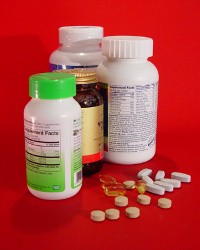Researchers from Harvard University, Brigham and Women’s Hospital in Boston, and CVS Caremark have found that expanded use of generic medications for chronic disease can significantly reduce the cost of preventive health care. Their findings appear in the July issue of the journal Health Affairs (paid subscription required).
The study concludes that preventive health care is considerably less costly than previous industry estimates, because earlier studies based financial impacts on the costs of branded medications. A 2008 study of preventing cardiovascular disease, for example, used branded medications to estimate the cost for lowering low-density lipoprotein (LDL, “bad”) cholesterol at $83,327 per quality adjusted life year or QALY, a financial measure that evaluates the impact of improving the quality of life for patients with chronic diseases. Recalculating that same treatment today using generic alternatives would be $17,084 per QALY, about 20 percent of the original estimate.
Another, and even more drastic, reduction can be seen in treatments for glucose control in cardiovascular patients. A study, also in 2008, estimated branded medications to control glucose to have a per-QALY cost of $48,759. With generics today, that cost per QALY is $1,022, about two percent of the branded medication estimate.
The researchers offered a series of recommendations to encourage more use of generics for chronic diseases:
– Promote the use of generics in the new Accountable Care Organizations treatment standards, where there are incentives to prevent adverse health outcomes while lowering overall health care costs.
– Limit the use of prescription writing practices such as Dispense as Written, where doctors and patients can require their prescription be filled as a specific brand.
– Amend state Medicaid statutes that require patient consent before generics can be substituted, because those practices add billions to the cost of treatment.
– Tighten e-prescribing guidelines to encourage the use of more cost-effective medications.
– Better educate physicians and patients on the effectiveness of generics to offset some long-held biases that generics are not as effective as brand medications.
– Develop new incentives through pharmacy benefit and health care plans that promote the use of generics.
“Policy makers looking to improve and expand health care options should make sure generics are readily accessible for chronically ill patients, says William Shrank of Harvard and Brigham and Women’s’ and lead author of the study, adding “the topic of generics and effective preventive treatment should be central to any debate on making health care more affordable.”
Read more. Study: Longer Drug Exclusivity Hikes Costs, Adds Approvals
* * *


 RSS - Posts
RSS - Posts
[…] Read More: Generic Drugs Can Generate Sharp Health Care Cost Reductions […]
[…] report this week in a health policy journal shows how prescribing generic drugs rather than branded medications as part of a systematic […]
[…] Read more: Generic Drugs Can Generate Sharp Health Care Cost Reductions […]